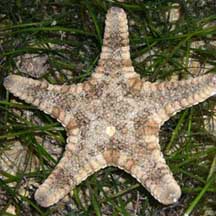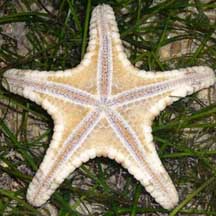 |
|
| sea stars text index | photo index |
| Phylum Echinodermata > Class Stelleroida > Subclass Asteroidea |
| Biscuit
sea star Goniodiscaster scaber Family Oreasteridae updated Mar 2020 Where seen? This thick, neatly shaped sea star does indeed look like a biscuit in shape and colour! It is often seen on our Northern shores, larger adults on rubble, smaller ones and tiny juveniles among seagrasses, usually alone or widely spaced apart. There are times, however, when large numbers of this sea star are seen. Features: Diameter with arms 5-15cm, sometimes really small ones about 2-3cm are seen. Body flat but thick. Almost always five arms, rather short with rounded tips and smooth sides (no spines) so that the sea star looks like it was cut out with a cookie-cutter! The upper side has a neat texture of rounded bumps. Colours of the upper side generally shades of brown, with regular, neat patterns of spots and bars in darker brown, yellow, orange or white. Patterns may vary among individuals. The underside is pale to white, larger ones be darker in the centre with bluish edges along the grooves where the orange tube feet emerge. The tube feet are tipped with suckers. It does not have large bivalved pedicellariae (pincer-like structures) on its underside or upper side. What does it eat? These sea stars have been observed clasping coral rubble coated with encrusting animals. They may be feeding on these organisms. We don't really know for sure. Sometimes confused with the Spiny sea star (Gymnanthenea laevis) and the Cake sea star (Anthenea aspera). Here's more on how to tell apart large sea stars seen on our shores. |
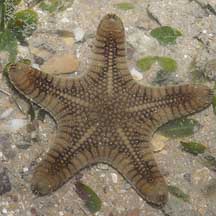 Tuas, Jun 05 |
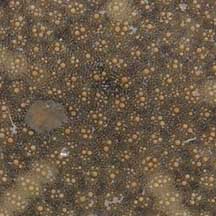 Upperside. |
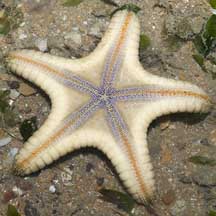 Underside. |
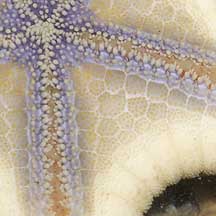 Does not have large bivalved pedicellaria. |
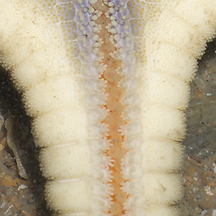 |
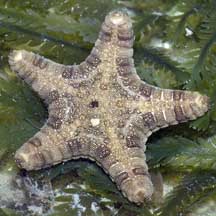 Chek Jawa, Jun 05 |
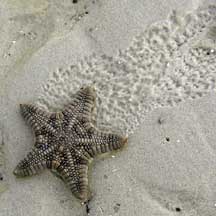 Chek Jawa, Jul 03 |
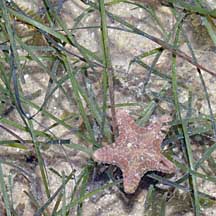 Changi, Oct 10 |
| Biscuit sea stars on Singapore shores |
On wildsingapore
flickr
|
| Other sightings on Singapore shores |
|
Links
References
|
